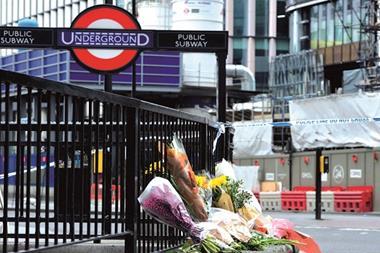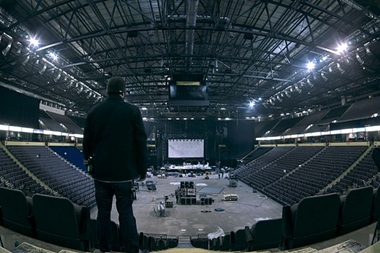So today’s the day we find out what the electorate wants. As Property Week went to press ahead of yesterday’s snap general election, the major parties were understandably focusing on security above all other issues in the wake of a second terror attack in the UK in as many weeks.

The industry is, too, specifically on what extra measures it needs to introduce to improve the security of markets, shopping centres and arenas, the so-called soft targets increasingly in the terrorists’ sights - and rightly so.
Depressingly, but inevitably, we cannot rely solely on the security forces to quash every threat.
There are too many and the hideous irony is that some perpetrators fall through the net because they are deemed too amateur or low-risk compared with others on international watch lists to figure highly on the intelligence agencies’ radar.
truth is that some of them are amateur, but as last weekend’s attack demonstrated, they are far from low risk, their low-tech weapons of vans and knives every bit as deadly as sophisticated nail bombs.
Perhaps it is time to respond in kind with low-tech countermeasures such as bollards, barriers and reinforced glass, alongside hi-tech kit such as facial recognition software. Surely it makes sense to use the full spectrum of countermeasures - both visible and discreet - to try and protect people from the full spectrum of potential terror attacks.
Not that I think people will be deterred from going about their normal business. Just witness the derision on Twitter in response to suggestions in the US press that the nation was still ‘reeling’ after the Manchester attack and the defiance and joy of those who attended the One Love Manchester benefit concert.
Entrenched shopping habit
The nation will keep shopping too, regardless of the threat level. Our shopping habit has been entrenched ever since the pioneering department stores of Selfridges and Marks & Spencer opened their doors for the first time.
For decades, the department store sector thrived. However, more recently, many operators have struggled and last year BHS succumbed to the pressure, prompting some agents to ask whether we have reached ‘peak department store’.
So have we? It would certainly appear so given that just over a year on from BHS’s collapse, only a third of the stores on the market are thought to have been re-let. The demand just isn’t there for big-box units of that order, it seems, especially when they are in less-than-prime locations.

On the plus side, the remaining players are not just sitting around waiting to be sent to the knacker’s yard. They are taking pre-emptive measures in an attempt to avoid BHS’s fate. Debenhams has announced it is reviewing its store estate and could close some stores and warehousing space and House of Fraser is expected to embark on a similar restructuring.
Meanwhile, others are remodelling their stores in a bid to give shoppers the sort of experiential shopping trip they have come to expect - and that online retail cannot deliver. There are also rumours that some operators are looking to renegotiate leases where stores are underperforming.
There will no doubt be different strategies deployed as there will be in the fight against terror. Fortunately the industry is up for the fight.






























No comments yet